What happens post-incursion is where the conflict will be won or lost
What Israel must ensure is that whatever it leaves behind is better in the medium term than what it destroys. But it is difficult to see how that can be the case – there will be immense damage caused to Gaza and the death toll will be significant.
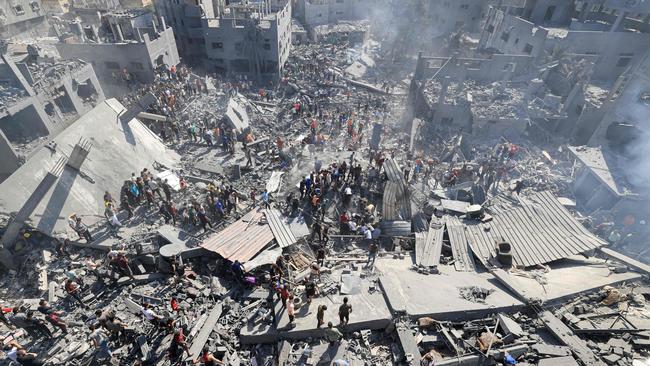
Following the shock of Hamas’s deadly terrorist attack on Israel on October 7, the international community has scrambled to make sense of what it means for the region.
For Israel there is an immediate need to respond to re-establish the element of deterrence that is a cornerstone of its security policy. Most other parties are desperately seeking to limit the Gaza conflict’s impact on the region. This includes Iran, which seeks opportunistically to leverage the tragedy to advance its own interests while avoiding the crisis spiralling out of control.
How successful each country is in achieving its strategic aims will determine the degree to which Hamas’s actions change the trajectory of the Middle East.
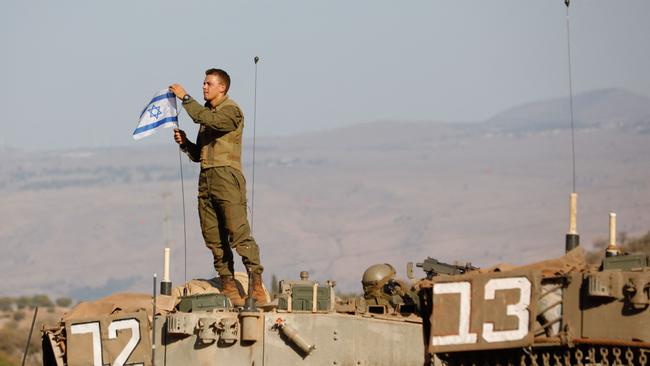
For Israel, the opening phase of the anti-Hamas campaign began almost three weeks ago with the start of the air offensive. The Netanyahu government presided over arguably the worst security failure in the nation’s history and there will be a domestic political reckoning for this.
Traditionally, Israel’s ability to defend itself has rested on the concept of deterrence, aided to a large degree by a highly regarded intelligence apparatus and a willingness to act on information it provides, as well as the maintenance of a qualitative technological advantage over its enemies.
But relatively poorly equipped and lightly armed Hamas operatives bettered Israel’s intelligence agencies and breached Israel’s hi-tech safety barrier before murdering 1400 people and kidnapping hundreds more. Deterrence, once lost, can be hard to regain.
Politicians have called for the destruction of Hamas while the military, aware of the impossibility of such a task, seeks its degradation.
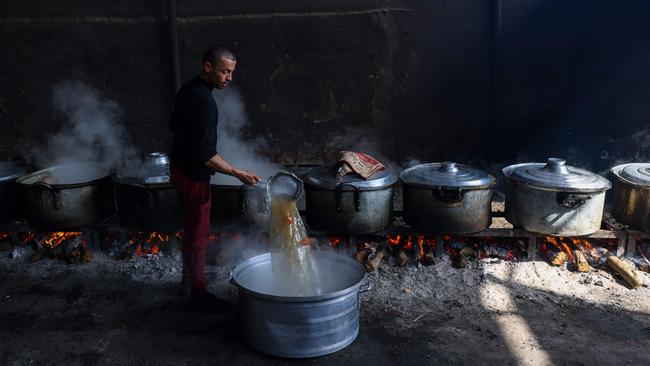
For this mission to be achieved, Hamas’s headquarters, firing points, logistic hubs, tunnels and financial reserves will need to be damaged beyond long-term repair, its tunnels collapsed and its hold on political power in the Gaza Strip fatally wounded. Hamas has long understood this and positions those same high-value targets among the civilian population in defiance of all international humanitarian law.
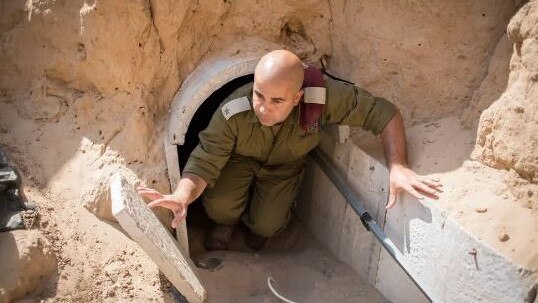
To kill or degrade Hamas you inevitably will kill Palestinians among whom it hides. But the more Palestinians who are killed, the more the world’s attention shifts on to the attacker. It is a conundrum for Israeli politicians and planners – it is also puzzling why calls for Israel to discriminate between civilians and Hamas personnel are loud yet calls for Hamas to adhere to international law and remove its facilities and its fighters from civilian areas are rarely, if ever, heard.
What Israel must ensure is that whatever it leaves behind is better in the medium term than what it destroys. But it is difficult to see how that can be the case – there will be immense damage caused to Gaza and the death toll will be significant. Calls for Israel to stop its military campaign will grow louder, inflamed by Hamas and its supporters as well as Western and regional states that have their own domestic audiences to answer to and who fear Israeli overreach will create more problems than it solves.
But it is hard to see how Israel can degrade Hamas militarily and destroy it as a political entity and then just leave Gaza to the international community to administer or some other Palestinian entity that would be tarnished forever with the brush of collaboration. Failing this, Israel will need to reoccupy Gaza for at least the short or medium term. The optics of this, let alone the reality, will be appalling.
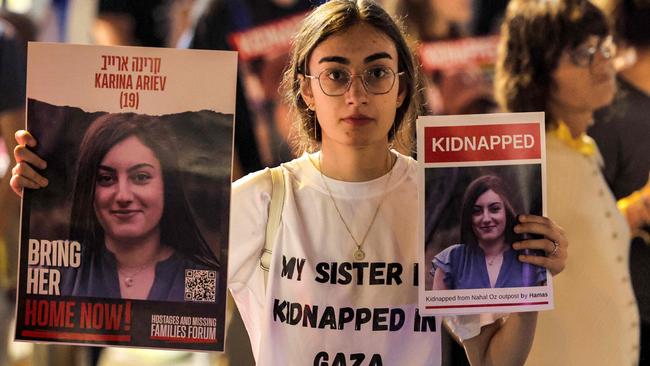
Herein lies the problem for Israel’s military and political establishment – a ground incursion will degrade Hamas militarily and perhaps neuter it politically, but the post-incursion phase will be where the conflict is won or lost. And without a coherent post-invasion plan, the military phase will be for nought.
In terms of Washington, US President Joe Biden has been dealt the toughest foreign policy challenge of his term, more complex even than the situation in Ukraine.
The potential for this conflict to spread is real and Washington must tread a fine line between publicly supporting Israel, including a government that the White House has little time for, while ensuring that it is seen to be holding the Israeli government to account for the way it prosecutes the war. The US must reaffirm Israel’s right to defend itself, which will result in many Palestinian deaths, while reaffirming its commitment to a two-state solution and continued Israeli integration in the region.
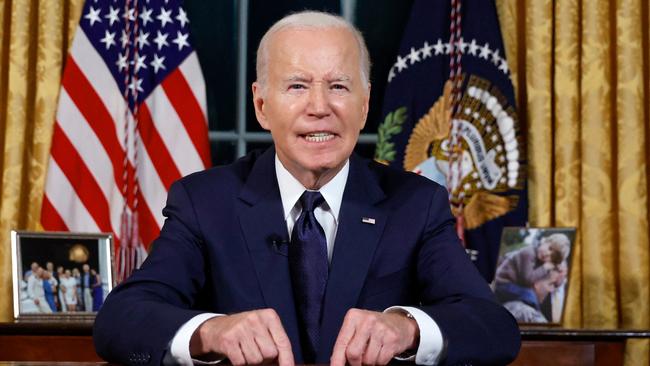
Washington must present a strong front to dissuade Iranian interference into the situation while responding appropriately and proportionately to provocations from Iranian-backed groups in Iraq, Syria, Lebanon and even Yemen.
It is no easy task, and hence why force protection assets are being moved into the region. The US also needs to ensure as far as possible that its forthright defence of Israel doesn’t make Americans in the region the target of attack. Hence the equally public calls on Israel to minimise casualties and adhere to international law.
In the longer term, Biden National Security Adviser Jake Sullivan’s now-notorious line from a week before the Hamas attack that “the Middle East region is quieter today than it has been in two decades” shows yet again that the region has an unparalleled ability to up-end US strategic policy at short notice. To paraphrase Michael Corleone in The Godfather, for all successive administrations’ talk of pivoting to Asia, just when Washington thought it was out of the Middle East, it has yet again been pulled back in.
With the post-ground phase of Israel’s response in Gaza likely to be problematic, the continued presence of US military forces in the region is likely to be required to reassure regional states that Washington remains engaged and to dissuade others from seeking to take advantage from the situation.
Concern about the likelihood of the conflict in Gaza spreading more widely within the region centres on Iranian intentions.
While there is no evidence that Iran played a central role in the October 7 attacks, as has been claimed in some prominent news reporting, Tehran’s long-term logistical, financial and training support certainly helped enable Hamas to launch the attack.
Iran sees opportunity in the crisis but also is wary of overreaching. Tehran’s highest strategic priority is not the destruction of Israel but is and always has been the maintenance of the Islamic regime’s hold on power, so its actions are always calibrated with this in mind. It adjusts the weight of its military support to reflect an issue’s strategic importance – significant when propping up the Assad regime in Syria and just enough to the Houthis in Yemen to act as a spoiler. It is sensitive on issues where it sees the possibility of direct military action against it as a real possibility.
The prospect of a longer-term US presence in the region when Washington’s interest was waning also will be an unwelcome by-product of Hamas’s attack.
Support for anti-Israeli and anti-Western forces will continue to be facilitated and resourced by Tehran. It has instituted a decades-long campaign of developing relationships with groups that share and do not share its ideological world view but who have common strategic aims. Iran has transactional relationships with fellow travellers and deeper relations with coreligionists.
Among all its partners and proxies in the region, Lebanese Hezbollah is arguably its most valuable strategic asset and Tehran is loath to fritter away such a valuable asset by opening up a second front in northern Israel that will not have a decisive impact on the conflict in Gaza. Were Hezbollah to open a second front in northern Israel, the Israeli response would degrade it militarily and further damage a Lebanese economy that is already in free fall.
Hezbollah has a domestic constituency to which it has to answer, and that constituency is not willing to suffer further economic damage to provide support to Hamas. And having effectively lost Hamas as a credible military force after the Israeli incursion, Tehran will not want Hezbollah or any other of its allies to go the same way.
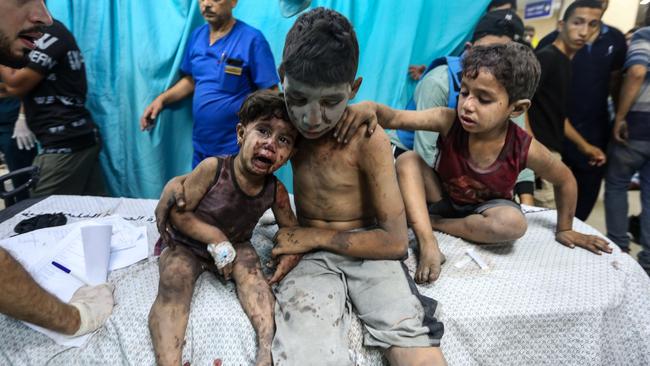
Simply threatening to open a second front, while executing a campaign of medium-intensity indirect and direct fire attacks against Israeli military targets, means Hezbollah forces Israel to maintain assets in the north that it could otherwise redeploy to Gaza.
In this way it provides practical support to Hamas without becoming decisively engaged in fighting against Israeli forces and facing a disproportionately heavy response against it.
Of course, this approach is sustainable as long as the traditional rules of the game are observed by both sides. Selectivity in targeting and proportionality of response are good principles, but in the current environment it is a brave person who will guarantee that the old rules still apply.
The regional Arab states will tread a fine line on this issue, but they are largely strategic price-takers here. With the exception of Qatar, few of the Arab states have any great regard for Hamas. Its Muslim Brotherhood origins put it on the wrong side of most Arab rulers but there is much popular support for the Palestinian cause in general. For that reason alone most Gulf states have condemned the actions of Hamas while supporting the Palestinian cause in general and criticising Israel over civilian casualties in Gaza.
Expect that criticism to ramp up when the ground offensive begins. Rulers in Arab capitals will adopt a public approach that is most likely to placate their domestic audience, but their real positions will be conveyed in private – Qatar has continued to play its ambiguous but well-practised role of Hamas supporter and Western mediator.
Any further advances in the normalisation process between Israel and its Arab neighbours seems a forlorn hope for now. After the ground campaign in Gaza, moves towards closer relations with Israel will be too controversial an issue for Arab states to raise for some time to come.
As it is, the seeds of the successful Abraham Accords agreements lie in shallow soil. While travel between the countries has started and some economic benefits have accrued, tourist numbers from the United Arab Emirates and Morocco to Israel are anaemic (compared with travel the other way). This says much about the challenges in developing any deep people-to-people links between Israelis and the wider region.
The Gaza crisis still has a long way to play out and the real test for what the longer-term impact will be will begin with Israel’s ground offensive. What follows will be key to determining whether Israel’s military response to Hamas’s terrorist attack reinstates Israeli deterrence or whether what it leaves behind in Gaza simply breeds the next security challenge.
While Iran and armed non-state actors will support the Palestinians to a degree, regional actors also realise there is too much at stake to lose it over support for Hamas. Miscalculations are always possible, of course, when drones and missiles are thrown around the skies, but the status quo is likely to hold.
However, what the events of the past three weeks have shown is that regardless of how many normalisation agreements governments may sign with Israel, the Palestinian question still matters to the Arab street.
Rodger Shanahan is a Middle East analyst and the author of Clans, Parties and Clerics: The Shi’a of Lebanon.

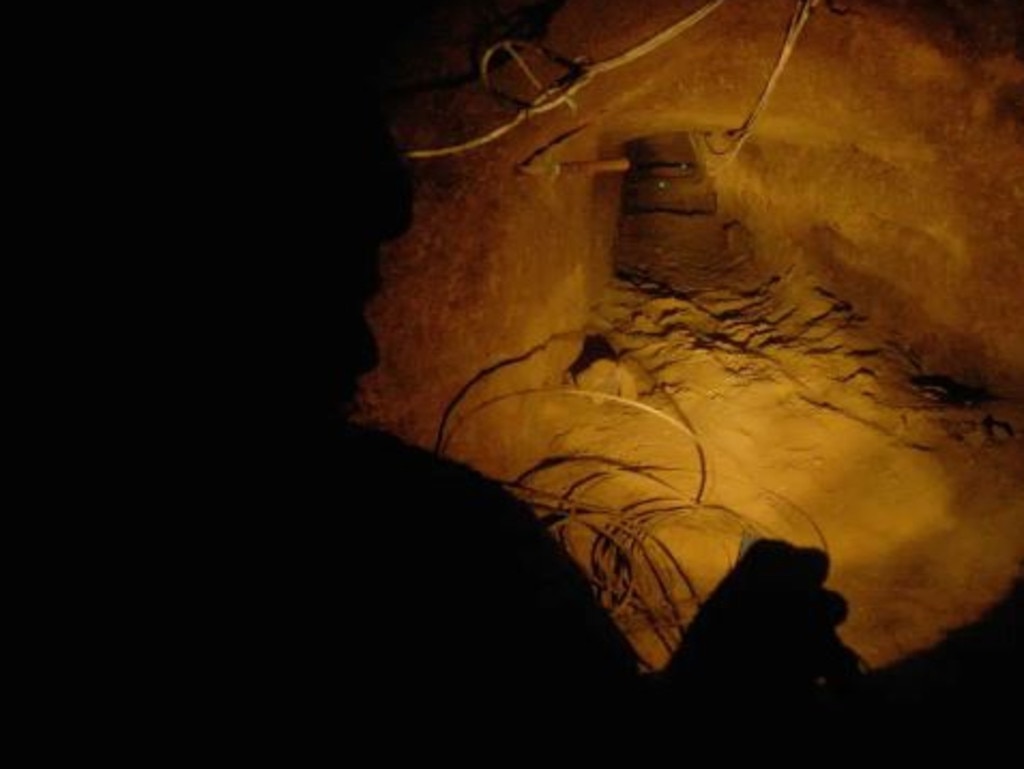

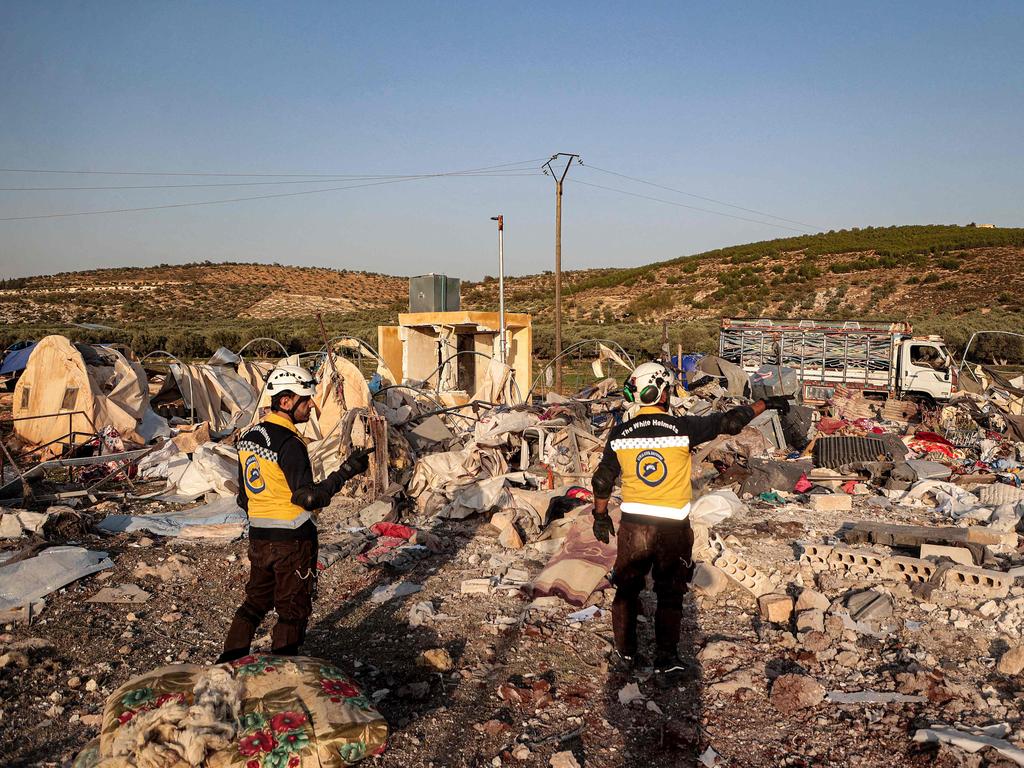
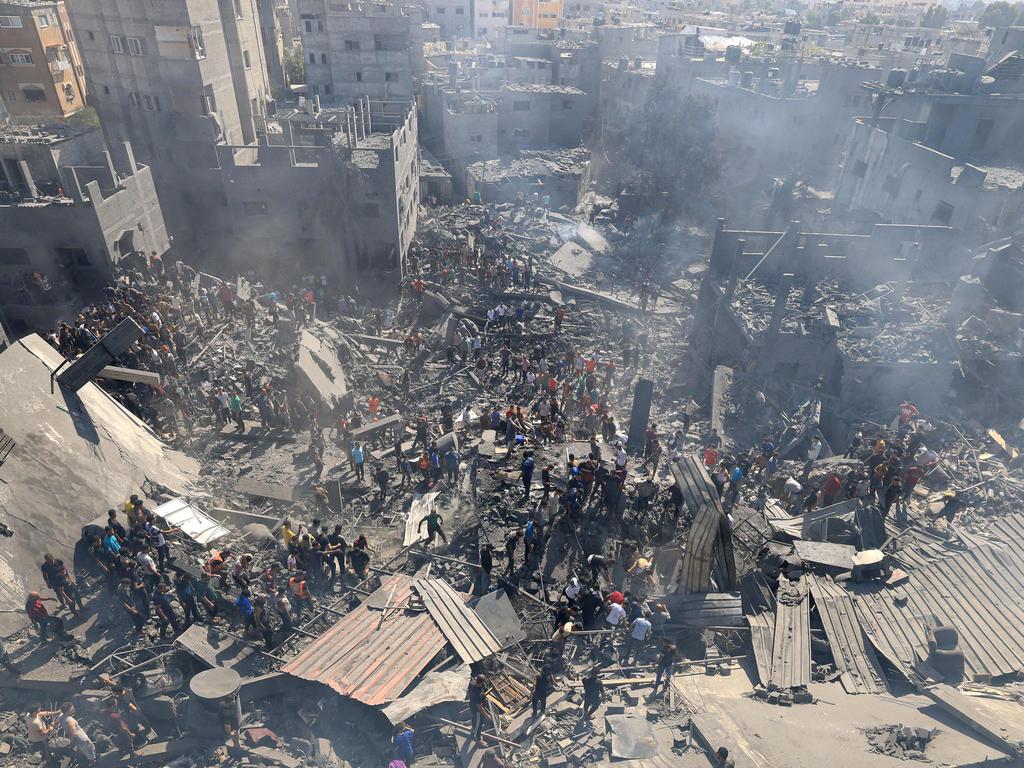
To join the conversation, please log in. Don't have an account? Register
Join the conversation, you are commenting as Logout